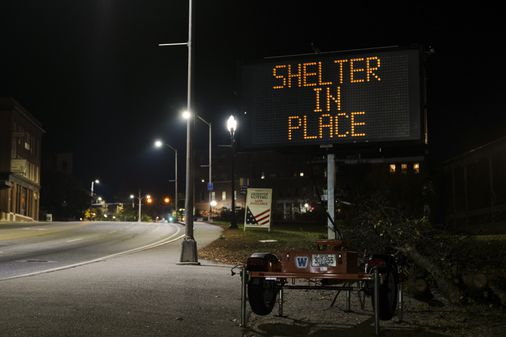
The horrific mass shootings in Lewiston, Maine, are yet another example of a preventable tragedy that plagues every community in the United States. Once again, a weapon used for war ended 18 lives in a matter of minutes, and has left an entire community grieving and traumatized. Sensible solutions to gun violence can prevent these mass shootings, but to achieve that, the public, the press, and policymakers cannot keep falling for red herrings.
As with many other heavily publicized acts of gun violence, attention has been focused on the Lewiston suspect’s reported mental illness and psychiatric hospitalizations. However, it is dangerous to blame this attack or other forms of gun violence on mental illness. Despite the consistent focus on mental illness as a major cause of gun violence, only about 4 percent can be attributed solely to mental health issues. By irresponsibly promoting myths that link mental illness with dangerousness, officials perpetuate stigmas that only continue to hurt people suffering from such illness. In fact, it is far more likely that someone with mental health issues will be a victim of gun violence than a perpetrator, especially in the form of firearm suicide.
Further, scapegoating mental illness is especially ineffective in preventing mass shootings for a few key reasons. First, only 5 percent of mass shooters had qualifying mental health issues, according to research into 106 mass shooting events from 1990 to 2014, that would have legally barred them from owning or purchasing a firearm based on severe mental illness before carrying out the attack.
Second, research and data show that behavioral risk factors are far better at predicting violence than mental health diagnosis alone. Public health experts have known for decades that the most accurate indicator of future acts of violence are past acts of violence. Combine this with other factors like drug and alcohol misuse, repeated interactions with law enforcement, and other risky behaviors, and the public will have a better understanding of indicators for potential violence than mental illness. This is about examining risk and following epidemiology, not perpetuating mental health stigma.
Third, the United States has similar rates of mental illness as our peer countries. But what makes us different is our uniquely easy access to firearms.
Maine has a policy in place that is referred to as a “yellow flag law,” which aims to stop people with a history of mental illness from obtaining firearms. This law, while seemingly intended to prevent gun violence, focuses almost exclusively on mental illness instead of risk factors, and therefore lacks the evidence-based public health approach that is needed to stop acts of violence.
Creating risk-based policies that empower law enforcement, loved ones, and professionals to ask a court to temporarily prohibit an individual’s access to firearms if that person shows signs that they are at risk of harming themselves or others is a proven and effective way to prevent gun suicides and mass shootings. We’ve seen success in other states with risk-focused policy, such as Connecticut, where for every 10 to 20 risk warrants that are issued, at least one suicide was prevented. In California there were at least 58 instances of orders being used against individuals threatening mass shootings. In at least 21 of these cases, none of the threatened shootings had occurred, and none of the risk order subjects were subsequently linked to homicides or suicidal acts. Importantly, these laws were intentionally designed, in their initial recommendation by the Consortium for Risk Based Firearm Policy, to avoid reliance on mental health diagnoses, and instead to focus on the behaviors that best indicate potential future violence.
Americans are demanding solutions to prevent future tragedies like the mass shooting in Lewiston. To accomplish that, policymakers must not give into the red herring of mental illness but instead follow evidence-based research.
Kris Brown is president of Brady, a gun violence prevention group.
